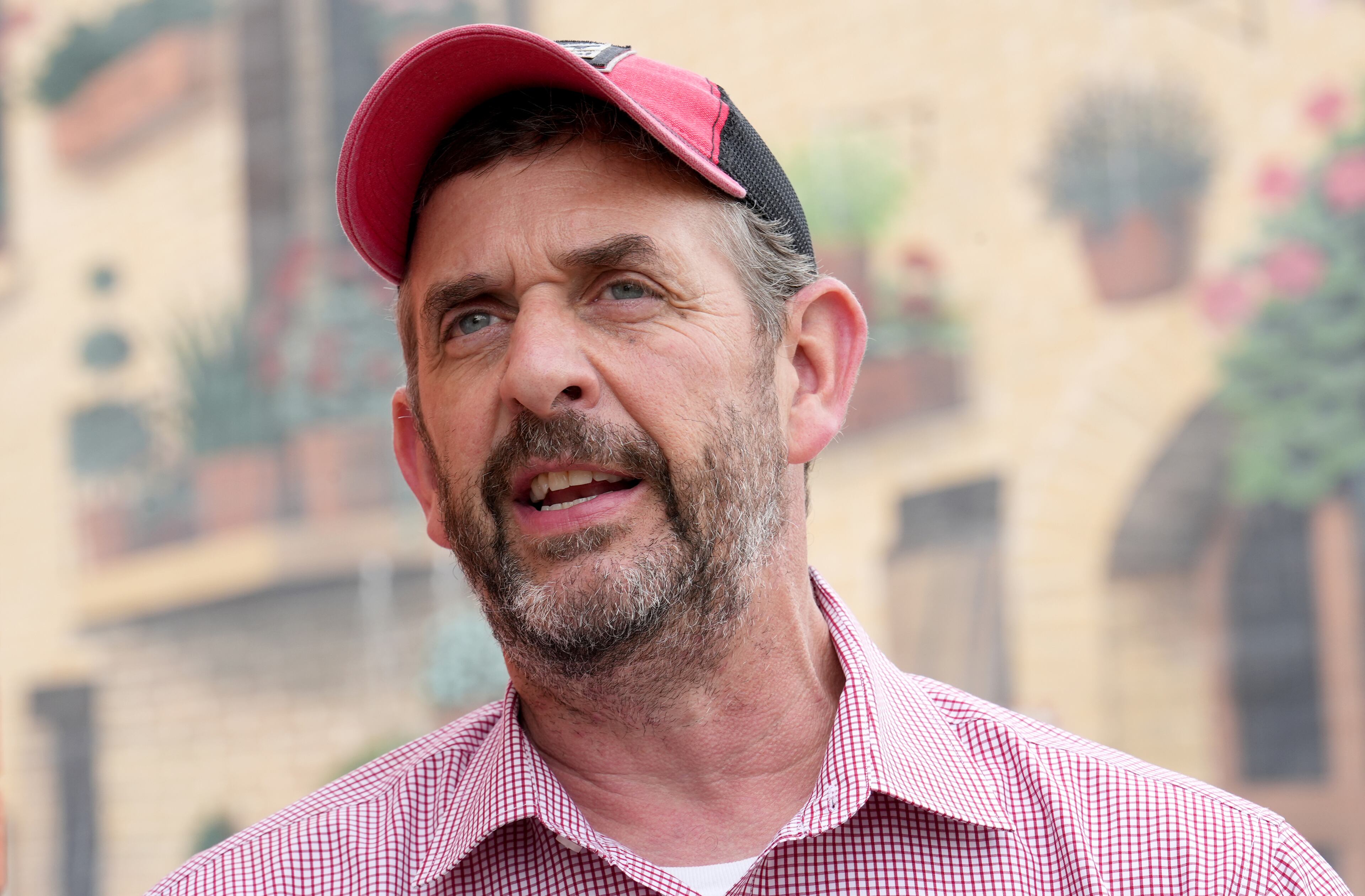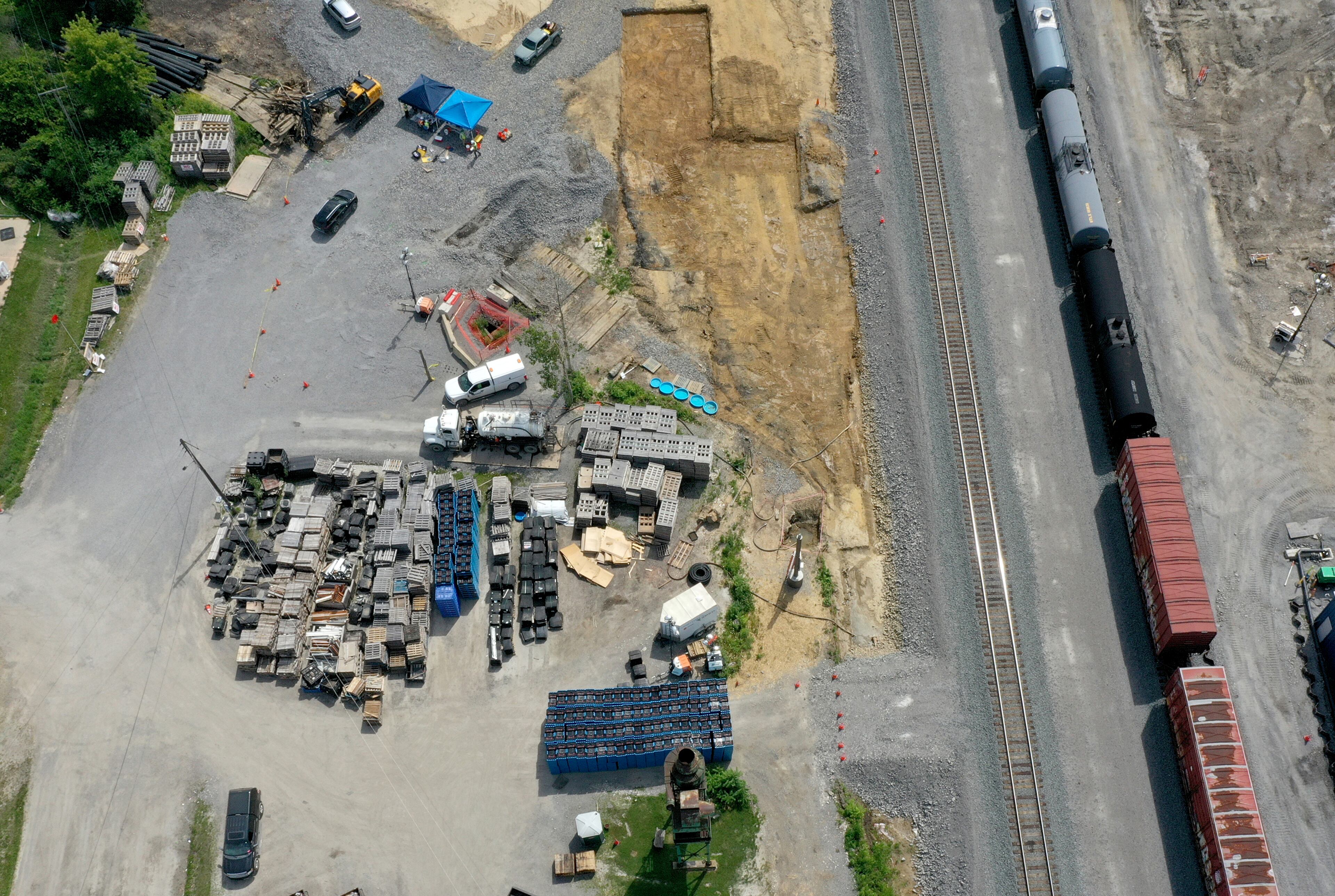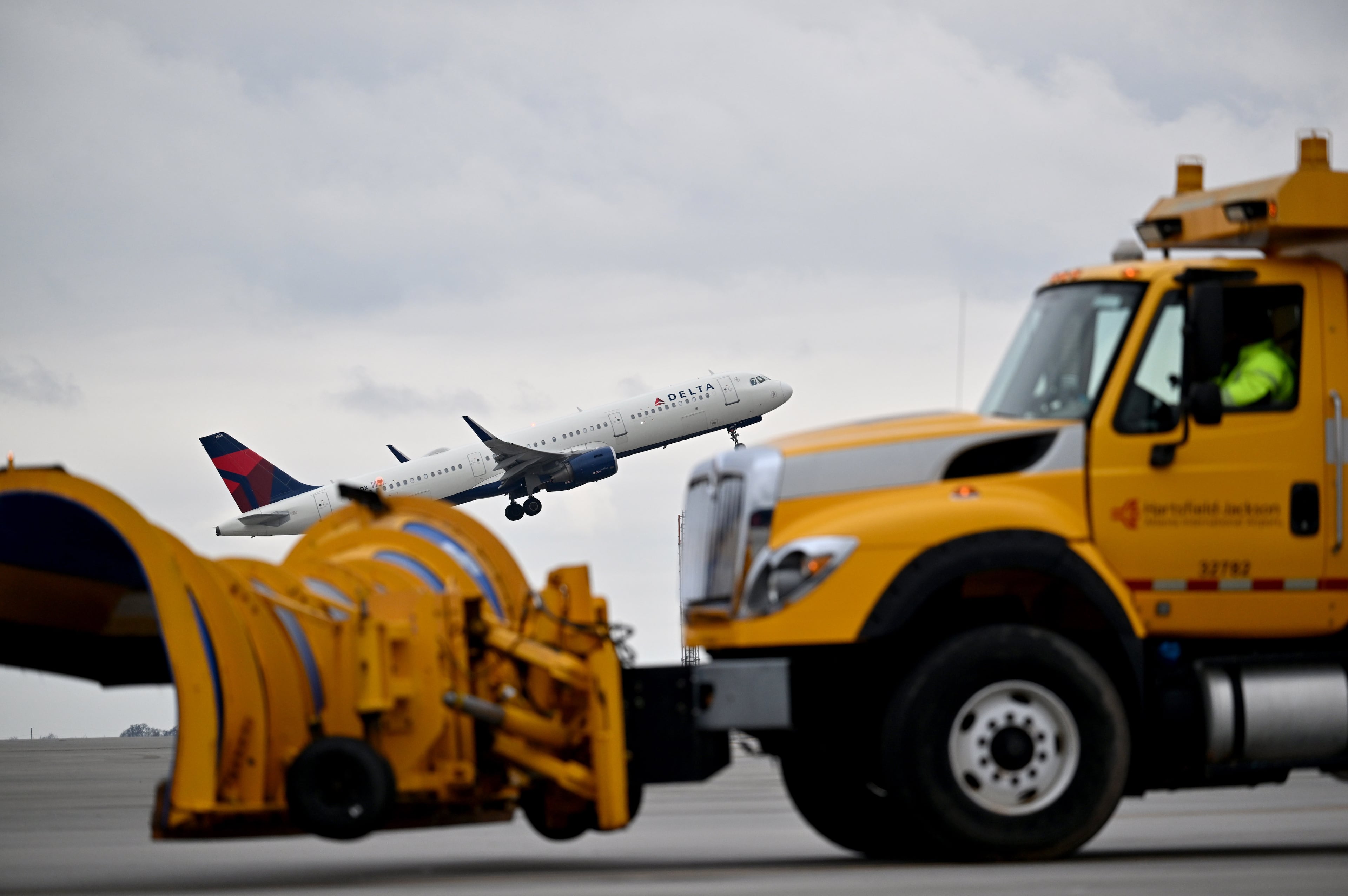Ohio town still cleaning up six months after Norfolk Southern wreck

EAST PALESTINE, OHIO --- Train whistles and the rumble of locomotives fill part of the soundtrack of Scott Berresford’s life. He lives a block from the tracks that bisect this blue-collar town hugging the Pennsylvania state line.
He’s so close that when a Norfolk Southern train carrying toxic chemicals derailed late on a cold winter evening, he could see the fire blazing from his home.
That was nearly six months ago. Standing on his porch on a recent Saturday, he watched as trucks hauled contaminated soil from the site. Life, he said, has yet to return to normal.
“It’s been hell,” Berresford said.
Environmental officials say the air and drinking water are safe. But the cleanup of hazardous chemicals from the Feb. 3 train wreck, originally expected to take just weeks, is now expected to continue through at least September.

For Atlanta-based Norfolk Southern, the fallout from the derailment in East Palestine is among the biggest challenges the railroad has ever faced. Norfolk Southern has been hit with lawsuits by the U.S. Justice Department, Ohio attorney general, residents, businesses and shareholders over the derailment. Congress is pushing tighter rail safety regulations. Disputes over the response to the derailment have intensified, including disagreement over officials’ decision to burn toxic vinyl chloride from five railcars in the aftermath of the wreck that led to a soaring plume of smoke that captured the world’s attention.
Norfolk Southern currently estimates that the wreck will cost the railroad $803 million, including cleanup expenses forecast into October.
Norfolk Southern CEO Alan Shaw has pledged to “make it right,” committing tens of millions of dollars to clean up and recovery efforts as well as a program for impacted homeowners. A medical compensation fund is also under development as concerns about long-term health effects from the contamination remain.
A creek that runs through town is still contaminated, with chemicals lurking beneath the rocks that surface with a rainbow sheen when jostled. But fish have started to return to the creek, a positive sign.
The U.S. Environmental Protection Agency has opened a community welcome center on the main drag. At the derailment site, large blue tanks store contaminated water. Trucks engaged in the remediation frequently roar through Berresford’s neighborhood, leaving a layer of dust on his furniture when the windows are open.
He’s unsure if there are contaminants in the soil, so he chopped down the garlic he planted last October, and opted not to grow a vegetable garden this year like he normally does.
“I don’t want to take the chance of eating it right now,” Berresford said.
After the wreck and as officials feared a devastating explosion and prepared to conduct a controlled burn of vinyl chloride from the railcars, much of East Palestine evacuated. Berresford left his home for a few days, and returned when the evacuation order was lifted. Many in the town of 4,700 have moved or still haven’t returned, living unsettled lives in hotels for months on end, with Norfolk Southern paying for lodging and other expenses.

East Palestine Mayor Trent Conaway estimates 160 to 200 people are still displaced. “They’re all over the place,” in other parts of Ohio and in Pennsylvania, he said. He knows another 25 families that have left permanently.
While some residents have left, East Palestine is filled during the day by workers from the EPA, Norfolk Southern and contractors working on the cleanup.
‘For the long haul’
Norfolk Southern, which has a gleaming headquarters building in Midtown Atlanta and is one of Georgia’ Fortune 500 companies, has funded remediation efforts and committed more than $64 million into East Palestine and the surrounding area, including pledging at least $25 million in improvements to the city park. It has pledged to develop long-term programs for a medical compensation fund, to protect drinking water and support home values.

The company also signed a two-year lease for a family assistance center in East Palestine.
“We’re gonna be there for the long haul,” said Norfolk Southern CEO Alan Shaw. “We want the environmental remediation here to be the gold standard.”
In an interview with The Atlanta Journal-Constitution, Shaw said he visits East Palestine nearly every week.
”When I go back, I sit down and listen to the community about what we can do to help and I’m there to check on our progress,” Shaw said. ”What I hear from the community is that people are recognizing the work that’s been done, and they are seeing progress.”
But some residents still bitterly remember that Norfolk Southern officials, fearing for their own safety, skipped a town hall full of angry residents seeking answers days after the crash.
“It wasn’t going to be easy to win anyone’s heart back in this town, rightfully so,” said Republican Ohio state Sen. Mike Rulli.

Others lost trust in Norfolk Southern back in February after it cleared rail cars from the wreck and restarted train traffic with plans to remediate the site in place. The EPA stepped in and the railroad agreed to pull up the tracks and remove contaminated soil.
“I understand they had to get their freight through. But these are people’s lives here,” Mayor Conaway said. “They have rectified the situation now, but it’s like we started off on the wrong foot and then they’ve had to try to make their way back through. Trying to get everybody’s trust back.”
The plan for a home value assurance program is among the moves by Norfolk Southern that have won over some people, according to Rulli, as well as the park renovation plan.
“They’re trying to do the best they can,” said Jim Kachelries, owner of The Original Roadhouse, a popular wood-fired steak eatery in East Palestine. Kachelries’ restaurant has gotten lunch business from Norfolk Southern employees and other response workers, but his dinner business is still suffering from the loss of locals.
Sheryl Biddle, who works at a local flower shop, has concerns about chemicals in the water and said she still drinks bottled water. But she thinks Norfolk Southern has done a lot to help the town.
“I think they’ve really tried to go many steps beyond what they had to do,” said “They could have walked away and said it was an accident.”
But for others, “it feels like a PR stunt to be able to show that you’re doing a lot of goodwill to the community, versus the community priorities really being focused on health and making the community whole again,” said Misti Allison, who lives in East Palestine and testified before a U.S. Senate committee on the derailment impact in March.
Shaw and other Norfolk Southern officials say the company is doing both.
Jeremy Vranesevich is a Norfolk Southern machinist who lives in East Palestine. He emailed Shaw days after the derailment to express his support. Not long after that, Shaw appointed Vranesevich as the company’s community liaison. Vranesevich has been working with local businesses, schools and organizations as he helps decide how to distribute $1 million from a Norfolk Southern support fund to East Palestine.
“I truly believe we’re doing a good thing here,” he said. “If not, I wouldn’t be doing it. I gotta show my face here in town.”

Deep divides
Still, some of the divides within the community about Norfolk Southern’s response and overtures spill out in public and social media.
“People that were once friends are fighting each other,” said resident Tammy Tsai, who helps manage a local Facebook group that has banned some members for incivility.
Allison, the resident who testified on Capitol Hill, thinks some people “are in denial” and don’t want to think about it, while people on the other end of the spectrum “are really in that fight mode,” and are “angry towards everything and everyone.”
The division has created distrust and animosity among some neighbors and within families of this small town, where many families have lived for generations because of the neighborly feel.
“That’s what’s been really the hardest, the hardest thing,” said Allison.
Some East Palestine residents are simply tired of thinking about the derailment. Tired of talking about it. They just want to move on with their lives.
But for Allison, Berresford and other residents in the area who continue to worry about their health, the derailment fallout is not over.
They aren’t letting their children play in the creek that runs through town and behind houses. They want definitive guarantees that their health care costs will be covered if the exposure results in cancer or other serious health problems. They want more testing and clearer assurances on the safety of their homes.
And many still aren’t drinking their well water, fearing chemicals from the derailment could seep into the ground for years.

Even with the water and air deemed safe by officials, there’s a sense of distrust among many residents, exacerbated by disinformation on social media and legitimate findings about the impact of the derailment after the fact.
EPA on-scene coordinator Mark Durno acknowledged that the agency’s air monitoring equipment was not sensitive enough to detect one contaminant at the level called for by health agencies for a period after the derailment.
And the EPA is looking into whether contamination is entering homes that sit along a creek known as Sulphur Run through basements that flood during heavy rains, according to Durno.

“I don’t think that in the beginning even Norfolk Southern really appreciated how big and how different this was than a normal derailment, and how truly traumatic it is to have this happen right in the middle of a small town. The beginning was definitely rough,” said Ohio EPA Director Anne Vogel. “It was obviously a really significant and life-changing event for this town.”
Allison said she and her husband, who are raising their two young children, have discussed whether they should move. But they want to stay — if it is safe.
It’s an “all-encompassing” concern for “years to come,” Allison said. It’s “something that will just be part of our history for the rest of our lives.”


